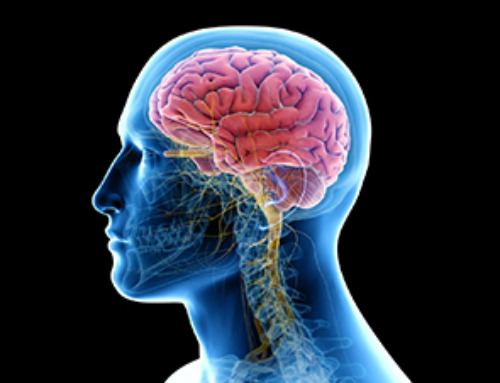We have witnessed a race by major technology companies to launch new platforms that signal the beginning of a new phase in the Digital Era: The Metaverse and Omniverse Era.
Those who perhaps believed AI, Blockchain, or Quantum would be the dominant force of the next Industrial Revolution are now likely wondering if The Metaverse or The Omniverse will play that key role.
From a futurist’s perspective, this is an exciting and long-awaited leap into immersive, multi-sensory, and converging technology experiences, however, we must also ask ourselves how will both of these poorly understood immersive digital ecosystems impact our society and culture?
From a digital ethicist’s perspective, one can expect significant concerns about how these will impact moral values and the ability to uphold ethical principles.
Experts were already warning about the profound and transformative socio-cultural impact of quantum, AI, blockchain, 6G, brain-computer interfaces, and other emerging technologies, as well as the need to prevent ethical violations. Now their concerns will be heightened and key stakeholders are faced with an even more complex Meta- and Omniverse-fueled digital ethics conundrum.
Challenges and Controversies
Before discussing the ethical dilemmas related to large-scale deployments of The Meta- and Mmniverse, we must first understand how they are defined. As highlighted in a recent technical paper published by Huansheng Ning and colleagues from Cornell University, The Metaverse is a “new type of internet application and social form that integrates a variety of new technologies”. The authors highlight its characteristics which are a symbiotic convergence of established technologies, emerging technologies, social media platform functionality and “hyper-spatio-temporality”. There is a vacuum of scientific papers on technical or ethical aspects related to The Omniverse, however, according to industry leaders promoting various applications such as Nvidia it is a trademarked term and represents “ a scalable, multi-GPU real-time reference development platform for 3D simulation and design collaboration, and based on Pixar’s Universal Scene Description and NVIDIA RTX™ technology.”
Some of the key ethical concerns that ethicists are already envisioning for both The Metaverse and Metaverse are related to consumer trust and rights, “misuse or unauthorized use of metaverse or omniverse-generated data, as well as extreme vulnerability to cyber-attacks. Would The Metaverse and Omniverse deployments pass a basic ethics checklist? More than likely not.
It would be difficult to argue that they meet the beneficence criteria and while some might argue that the intent is clearly to promote innovation and societal progress, they certainly increase the potential for malicious use. Given the multiple breaches published and the stats on cybersecurity that continue to show exponential increases in cyber-attacks for major companies, one would be concerned that they both would fail the strictest criteria for confidentiality and integrity.
While we do not have any proof yet regarding their ability or inability to uphold the principles of fidelity, integrity, and autonomy, we can certainly extrapolate from past deployments of other emerging technologies that were significantly less sophisticated. That methodology would sadly lead us to expect them both to fail.
If the technology companies that seem to be racing to achieve Meta- or Omniverse-supremacy would consider state-of-the-art ethics to be a competitive advantage we might have a pleasant surprise for once in our history and actually learn valuable insights from our past mistakes. Few companies have understood the need to be proactive and invest upfront in complex digital ethics and data governance programs.
To mitigate the potential negative consequences induced by The Meta- and Omniverse, we must advocate for the design and deployment of proactive digital ethics, proactive cyber-defense programs and creating a culture of digital ethics and cyber-awareness. Furthermore, these would need to be integrated and hrmanonized with other enterprise compliance programs to prevent ethical breaches.
While regulatory and legal experts are still trying to bridge the gap in frameworks that can address emerging technologies such as blockchain, AI, or next-generation computing, they must now face an even larger challenge as the Metaverse and Onniverse are trespassing multiple industry boundaries, while posing unique, novel ethical challenges.
Opportunities
So who are the key stakeholders that can engage in a global Meta- and Omniverse Data Governance and Ethics Program? Governments, academia, the private sector, and not-for-profit organizations would all have to collaborate to be successful. In addition to legal and regulatory updates, developing international standards, implementing key ethical performance indicators, as well as embracing societal expectations of diversity and inclusion will be paramount. First, we would have to establish the ethical design philosophy and desired outcomes for a society fully immersed in the Meta and Omniverse. Second, we would aim to create a robust ethics architecture that would ensure adequate data governance and address identity management, privacy, security, ownership challenges etc. Third would be the development of a customized ethical framework for various industries or domains. This framework would include the impact on society, the environment, long-term sustainability, education, and emphasis on ESGs.
Future Directions
Pessimists will likely envision the worst possible outcomes with a negative impact on education, arts, culture, social interaction, etc.
Optimists will hope that companies leading the charge in deploying the Meta- and Omniverse would be ethically and purpose-driven, with a vision and mission that aim to deliver “ethical, transparent” services or even to facilitate the attainment of UN SDGs.
News
Brain waves could help paralyzed patients move again
People with spinal cord injuries often lose the ability to move their arms or legs. In many cases, the nerves in the limbs remain healthy, and the brain continues to function normally. The loss of [...]
Scientists Discover a New “Cleanup Hub” Inside the Human Brain
A newly identified lymphatic drainage pathway along the middle meningeal artery reveals how the human brain clears waste. How does the brain clear away waste? This task is handled by the brain’s lymphatic drainage [...]
New Drug Slashes Dangerous Blood Fats by Nearly 40% in First Human Trial
Scientists have found a way to fine-tune a central fat-control pathway in the liver, reducing harmful blood triglycerides while preserving beneficial cholesterol functions. When we eat, the body turns surplus calories into molecules called [...]
A Simple Brain Scan May Help Restore Movement After Paralysis
A brain cap and smart algorithms may one day help paralyzed patients turn thought into movement—no surgery required. People with spinal cord injuries often experience partial or complete loss of movement in their arms [...]
Plant Discovery Could Transform How Medicines Are Made
Scientists have uncovered an unexpected way plants make powerful chemicals, revealing hidden biological connections that could transform how medicines are discovered and produced. Plants produce protective chemicals called alkaloids as part of their natural [...]
Scientists Develop IV Therapy That Repairs the Brain After Stroke
New nanomaterial passes the blood-brain barrier to reduce damaging inflammation after the most common form of stroke. When someone experiences a stroke, doctors must quickly restore blood flow to the brain to prevent death. [...]
Analyzing Darwin’s specimens without opening 200-year-old jars
Scientists have successfully analyzed Charles Darwin's original specimens from his HMS Beagle voyage (1831 to 1836) to the Galapagos Islands. Remarkably, the specimens have been analyzed without opening their 200-year-old preservation jars. Examining 46 [...]
Scientists discover natural ‘brake’ that could stop harmful inflammation
Researchers at University College London (UCL) have uncovered a key mechanism that helps the body switch off inflammation—a breakthrough that could lead to new treatments for chronic diseases affecting millions worldwide. Inflammation is the [...]
A Forgotten Molecule Could Revive Failing Antifungal Drugs and Save Millions of Lives
Scientists have uncovered a way to make existing antifungal drugs work again against deadly, drug-resistant fungi. Fungal infections claim millions of lives worldwide each year, and current medical treatments are failing to keep pace. [...]
Scientists Trap Thyme’s Healing Power in Tiny Capsules
A new micro-encapsulation breakthrough could turn thyme’s powerful health benefits into safer, smarter nanodoses. Thyme extract is often praised for its wide range of health benefits, giving it a reputation as a natural medicinal [...]
Scientists Develop Spray-On Powder That Instantly Seals Life-Threatening Wounds
KAIST scientists have created a fast-acting, stable powder hemostat that stops bleeding in one second and could significantly improve survival in combat and emergency medicine. Severe blood loss remains the primary cause of death from [...]
Oceans Are Struggling To Absorb Carbon As Microplastics Flood Their Waters
New research points to an unexpected way plastic pollution may be influencing Earth’s climate system. A recent study suggests that microscopic plastic pollution is reducing the ocean’s capacity to take in carbon dioxide, a [...]
Molecular Manufacturing: The Future of Nanomedicine – New book from Frank Boehm
This book explores the revolutionary potential of atomically precise manufacturing technologies to transform global healthcare, as well as practically every other sector across society. This forward-thinking volume examines how envisaged Factory@Home systems might enable the cost-effective [...]
New Book! NanoMedical Brain/Cloud Interface – Explorations and Implications
New book from Frank Boehm, NanoappsMedical Inc Founder: This book explores the future hypothetical possibility that the cerebral cortex of the human brain might be seamlessly, safely, and securely connected with the Cloud via [...]
Global Health Care Equivalency in the Age of Nanotechnology, Nanomedicine and Artificial Intelligence
A new book by Frank Boehm, NanoappsMedical Inc. Founder. This groundbreaking volume explores the vision of a Global Health Care Equivalency (GHCE) system powered by artificial intelligence and quantum computing technologies, operating on secure [...]
Miller School Researchers Pioneer Nanovanilloid-Based Brain Cooling for Traumatic Injury
A multidisciplinary team at the University of Miami Miller School of Medicine has developed a breakthrough nanodrug platform that may prove beneficial for rapid, targeted therapeutic hypothermia after traumatic brain injury (TBI). Their work, published in ACS [...]
























